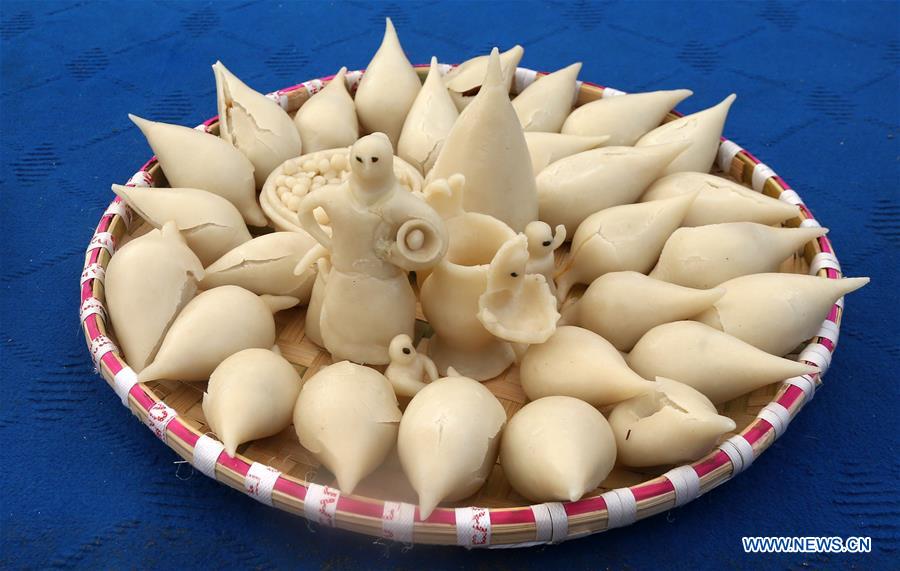Yomari Punhi - Newari Delicacy
Yomari, also called Yamari, is a delicacy and an essential part of the Newari community. It is a steamed dumpling with an outside layer of rice flour and an inner content of dark, sweet, thick liquid. The delicacy plays a vital role in Newaa society and is a key part of the Yomari Punhi festival in Nepal. According to some, the triangular shape of the tamari symbolizes one-half of the shadkona, the symbol of Saraswati and wisdom.
The Yomari-making technique itself is interesting. It is different in dough preparation, sweet liquid making, and packaging. Special classes are arranged for newbies who want to try making and eating Yomari. Normally, the sessions last around 2 hours.

The name Yamari comes from two Nepal Bhasa words: “ya:” meaning “to like,” and “Mari,” meaning “delicacy.” So, literally, it is a very popular food loved by the rest of the world and turning into fast food. Now, packaged Yomari is available in selected supermarkets in Kathmandu.
The Yomari Punhi festival is said to have started in Panchal Nagar, which is now known as Panauti. According to the tales, the couple Suchandra and Krita experimented with a fresh yield of rice from their field, which evolved into Yomari. The new delicacy was eventually distributed among the villagers. Soon after, everyone appreciated the newly shaped food named “Yomari.”
The myth further states that on the same day, the couple offered the new delicacy to the god of wealth, Kubera, who was passing by in disguise. Following this, Kubera disclosed his real identity and blessed the couple with wealth. He also declared that whoever will prepare Yamari in the form of gods and goddesses on the full moon of December and observe four days of devotion to God will no longer remain poor.
FAQs
Why is Yomari Punhi celebrated?
Yomari Punhi is celebrated in the Newari community to mark the end of the rice harvest. It honors the goddess of grain and wealth, and the steamed delicacy Yomari symbolizes prosperity and good fortune.
What is the meaning of Yomari?
The name "Yomari" comes from Nepal Bhasa, where "ya:" means "to like" and "mari" means "delicacy." Together, it signifies a beloved treat cherished by the Newari people and beyond.
Is Yomari a vegetarian or non-veg?
Yomari is a vegetarian delicacy, typically filled with sweet ingredients like molasses and sesame seeds, making it suitable for all dietary preferences.
Can we eat Yomari during pregnancy?
Yes, Yomari is safe to eat during pregnancy. It is a nutritious, wholesome food made from rice flour and sweet fillings, offering energy and warmth.
On which day is Yomari eaten?
Yomari is traditionally eaten on Yomari Punhi, which is the full moon day of December. This day celebrates the harvest and offers blessings for prosperity.





